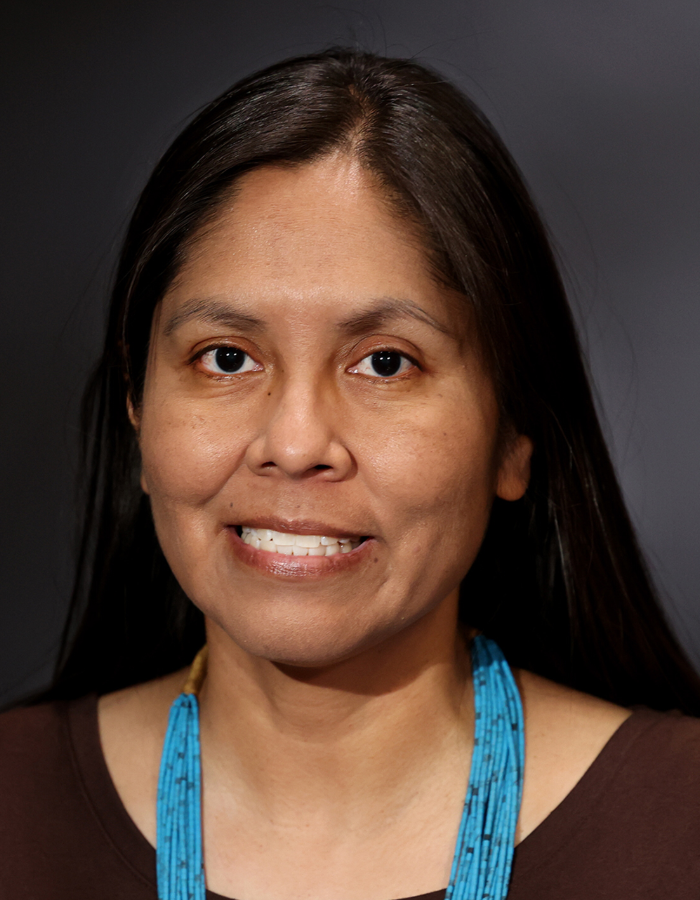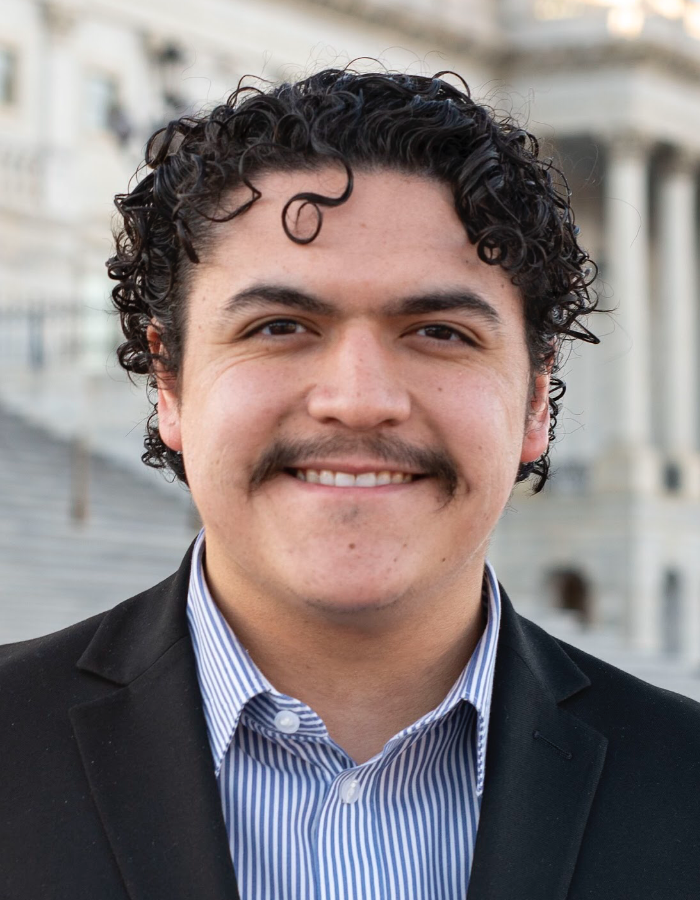By Pauline Arrillaga, Professor of Practice at the Walter Cronkite School of Journalism and Mass Communication & Executive Editor of Carnegie-Knight News21
On June 24, 2022, the U.S. Supreme Court issued a ruling that would upend almost five decades of legal precedent and leave behind chaos and confusion in communities across the nation. The justices overturned Roe v. Wade — the landmark case that had affirmed an individual’s constitutional right to an abortion.
From January to August of last year, 25 journalists from Arizona State University’s Walter Cronkite School of Journalism and Mass Communication and eight other universities across the U.S. joined the Carnegie-Knight News21 program to produce a national investigation exploring the broad impacts of that ruling, one year later.
“America After Roe,” a project I oversaw as executive editor of News21, examines how that monumental decision has gone beyond abortion bans and courthouse battles to more broadly affect health care, culture, policy, and people.
In 10 weeks, our student journalists — many of whom had never worked in a newsroom setting or traveled out of state to report — produced the type of work many professional outlets would take 10 months or more to publish.
They traveled to over 34 cities and towns in 14 states, as well as to Monterrey, Mexico, and Washington, D.C., with a goal of helping the public better understand how the decision was playing out on the ground and in individuals’ lives.
One team traversed New Mexico to document how, post-Roe, the state has emerged as a safe haven for abortion care but also a new battleground in the fight over access, with conservative towns battling liberal leaders over local anti-abortion ordinances.
Said one self-proclaimed abortion abolitionist who made clear his desire to outlaw abortion at all stages, for any reason: “We gained a lot of ground with the overturning of Roe v. Wade, but now it’s at the state level. Now instead of one battlefield, it’s 50 battlefields.”
Another team of reporters spent time in Texas with those who sued the state to clarify the scope of its abortion bans when applied to pregnant people facing emergencies. The story is as enlightening as it is heartbreaking, taking viewers inside the life-and-death decisions doctors and patients now face daily.
“People shouldn’t have to die for lawmakers to change some of these restrictions,” said one woman, who at 18 weeks of a much-wanted pregnancy was diagnosed with cervical incompetence — meaning there was virtually no chance her baby would survive past an inevitable premature birth.
Historically, doctors would perform an abortion to end the pregnancy to prevent the mother from developing a life-threatening infection. Instead, she was sent home with instructions to monitor herself. Days later, she developed sepsis. Her baby, Willow, was delivered and died shortly thereafter. Due to complications from the infection that she suffered, the mother may now never be able to have a child.
To provide readers a glimpse at how legislators are reshaping reproductive health care after Roe, some of our News21 journalists took on the monumental task of analyzing more than 550 abortion-related bills introduced last year in all 50 states. They found that these legislative sessions produced hundreds of bills that are all over the map with respect to abortion, including proposals to do what was once considered unthinkable: criminalize pregnant people themselves.
“The way that these bills are written are specifically written to be confusing,” Kailey Voellinger, former clinic director of the abortion-rights organization Trust Women Foundation, told our reporters. “These laws are intended to create fear and shame around health care, and it’s deeply frustrating to watch it happen over and over, state to state.”
Our team also spent time with the nation’s most vulnerable populations — Indigenous, immigrant, and Black individuals — to document new efforts to help those in need of care.
I have been asked many times why we chose abortion as the focus of our 2023 project. Each year, the program covers one issue or topic that affects greater America. In 2022, News21 reporters covered police reform. In 2021, it was how COVID affected various populations across the country. For 2023, I could think of no other issue that warranted our attention more than this one. The ripple effect of confusion caused by the overturn of Roe and its direct impact on the health care of people in cities across the country large and small — for people young and old, rich or poor, white or of color — was too large to ignore.
Our News21 journalists felt the same. For many, the issue was personal and profoundly emotional. One of our reporters was pregnant with her first child while she spent the summer reporting on reproductive health and the impact of the reversal of Roe on maternal mortality.
Her own baby is now six months old, but she recalls how scary the assignment was, “knowing that I could have easily been one of the many women who have a traumatic experience. Being pregnant, while listening to the stories of horrific labor and postpartum experiences, was one of the most mentally challenging things I’ve done.”
Some of the student journalists held strong opinions about abortion, one way or the other. But these feelings and opinions didn’t get in the way of reporting on one of the most important social issues of our time.
“Reproductive health care is often perceived as a political issue and key talking point for campaign trails, but rarely is it seen for what it is: a deeply personal conflict for many women and families across the United States,” said Kevin Palomino, a News21 journalist representing the University of Oklahoma.
“News 21 spent countless hours building trust with sources to tell their stories from across the political spectrum, never narrowing its reporting to a ‘single side,’ because reproductive health care is not a single-sided story or a two-sided story,” Palomino said. “It brings a variety of different perspectives that are equally significant to the broader question of, ‘What is it like to be a pregnant person in the United States?’”
In all, our team produced more than 14 written stories, 12 video stories, and eight audio stories, including a three-part podcast exploring the rise of the religious right and where it’s headed next. We also provided some of this content in both English and Spanish to reach as many people as we could.
To date, the body of work has been republished over 400 times in media outlets including The Associated Press, The Washington Post, Religion News Service, Indian Country Today, Houston Landing, NPR affiliates, the Mexican news magazine Gatopardo, numerous local newspapers, and even Canadian outlets.
Our reporters spent over seven months digging into the far-reaching impacts of the decision to reverse Roe v. Wade, and the end product represents the highest standards of journalism rooted in the values of truth, accountability, and giving a voice to the otherwise voiceless.
Said News21 reporter Morgan Fischer, a journalism student at the Cronkite School, “News21’s widespread coverage was essential to give audiences a full image of the impact that overturning Roe v. Wade had on individuals and organizations across the country.”
Viewpoints from some of the students who participated in News21’s coverage of post-Roe America
 Elise Gregg is a graduate student earning her master’s degree in criminal justice at Florida International University, where she also obtained her bachelor’s in journalism. As a News21 reporter, Elise went to Texas to examine the impact of Roe’s reversal on pregnant individuals who face medical emergencies but have been unable to get needed care because of confusing abortion bans.
Elise Gregg is a graduate student earning her master’s degree in criminal justice at Florida International University, where she also obtained her bachelor’s in journalism. As a News21 reporter, Elise went to Texas to examine the impact of Roe’s reversal on pregnant individuals who face medical emergencies but have been unable to get needed care because of confusing abortion bans.
Q: Why do you think it was important for News21 to help illuminate these issues?
A: I think it was important for News21 to help illuminate the issue of maternal health because so much of the debate surrounding abortion is about abortion for unwanted pregnancies. Shedding light on abortion as part of wanted pregnancies adds depth to the conversation. It allows people to be more informed about abortion as a purely medical procedure as well as understand its role. The topics we covered in our reporting reveal the diverse arenas in which reproductive care plays a role beyond elective abortions. Our work was important because it allows people to be fully informed on various issues that have come up post-Roe and the diversity of people they affect.
*****
 Noel Lyn Smith is a Diné (Navajo) reporter. She’s currently working for Inside Climate News as part of a yearlong fellowship funded by the Outrider Foundation and the Scripps Howard Fund. As a News21 reporter, Noel explored how the reversal of Roe has further restricted access to reproductive care for Indigenous women.
Noel Lyn Smith is a Diné (Navajo) reporter. She’s currently working for Inside Climate News as part of a yearlong fellowship funded by the Outrider Foundation and the Scripps Howard Fund. As a News21 reporter, Noel explored how the reversal of Roe has further restricted access to reproductive care for Indigenous women.
Q: What did you learn from your reporting about the state of reproductive care across America after the reversal of Roe v. Wade?
A: I learned that reproductive care for Native American women remains in dire straits. A large number of Native women seek reproductive care from the Indian Health Service. Because the IHS is under the Department of Health and Human Services, the federal government handles its funding and the way health care services are administered. Regulations, like the Hyde Amendment, affect a person’s ability to determine their medical care. I state this because abortion care was already limited or non-existent at IHS facilities before the overturning of Roe v. Wade. The situation is still the same today. It will be this way until the Hyde Amendment is changed or repealed.
*****
 Kevin Palomino is a senior pursuing a journalism degree at the University of Oklahoma. As a News21 video journalist, Palomino spent months building trust and developing sources with advocates in Mexico and along the Texas border to tell the story of how Mexican activists are helping people in the U.S. get abortion pills via underground networks.
Kevin Palomino is a senior pursuing a journalism degree at the University of Oklahoma. As a News21 video journalist, Palomino spent months building trust and developing sources with advocates in Mexico and along the Texas border to tell the story of how Mexican activists are helping people in the U.S. get abortion pills via underground networks.
Q: What most struck you from some of the people you interviewed during your reporting? What sticks with you?
A: Fear is a powerful thing that will push or prevent someone from (speaking out.) Through my reporting, I had the privilege to speak with brave and courageous women going against the confusing abortion rights laws to fulfill their passion. I’d often hear them say, “I wish I didn’t have to do this work,” when referring to their activism. Yet despite the risk of prosecution, they pushed past the barriers and fought their battle. They were fearful to provide even advice in what’s considered the most democratic country on Earth. That’s a problem.
Women in marginalized communities are not obtaining reproductive health care. Services meant to help women of color are struggling because of the increase in demand. Although it was a problem before the reversal of Roe v. Wade, it’s only worsened since then.
*****
 Morgan Fischer is an undergraduate student at the Walter Cronkite School of Journalism and Mass Communication at Arizona State University. As a News21 reporter, Morgan was part of a team that analyzed more than 550 abortion-related bills in all 50 states to provide readers a glimpse at how legislators are reshaping reproductive health care post-Roe. She also traveled to North Dakota, which has some of the strictest abortion laws in the nation, to learn how lawmakers are addressing gaps in care for mothers and children.
Morgan Fischer is an undergraduate student at the Walter Cronkite School of Journalism and Mass Communication at Arizona State University. As a News21 reporter, Morgan was part of a team that analyzed more than 550 abortion-related bills in all 50 states to provide readers a glimpse at how legislators are reshaping reproductive health care post-Roe. She also traveled to North Dakota, which has some of the strictest abortion laws in the nation, to learn how lawmakers are addressing gaps in care for mothers and children.
Q: What did you learn from your reporting about the state of reproductive care across America after the reversal of Roe v. Wade?
A: Through diving into the legislation being introduced and passed in state legislatures across the country following the overturning of Roe v. Wade, I learned so much about how these legislatures were beginning to tackle this new front of reproductive care. Identifying and analyzing legislation trends across the country, my team and I uncovered the different ways that individual state legislators from every side of the ideological spectrum were dealing with their state’s underdeveloped reproductive laws — finding all sorts of ways to either restrict or protect abortion rights. From restricting travel, to protecting doctors, and limiting or expanding access, legislators were experimenting with the power of law surrounding reproductive rights being kicked back to the states.





